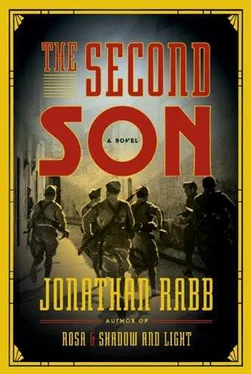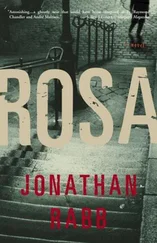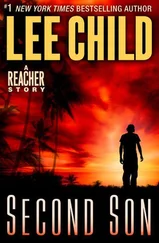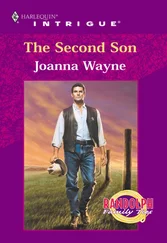Jonathan Rabb - The Second Son
Здесь есть возможность читать онлайн «Jonathan Rabb - The Second Son» весь текст электронной книги совершенно бесплатно (целиком полную версию без сокращений). В некоторых случаях можно слушать аудио, скачать через торрент в формате fb2 и присутствует краткое содержание. Жанр: Политический детектив, на английском языке. Описание произведения, (предисловие) а так же отзывы посетителей доступны на портале библиотеки ЛибКат.
- Название:The Second Son
- Автор:
- Жанр:
- Год:неизвестен
- ISBN:нет данных
- Рейтинг книги:4 / 5. Голосов: 1
-
Избранное:Добавить в избранное
- Отзывы:
-
Ваша оценка:
- 80
- 1
- 2
- 3
- 4
- 5
The Second Son: краткое содержание, описание и аннотация
Предлагаем к чтению аннотацию, описание, краткое содержание или предисловие (зависит от того, что написал сам автор книги «The Second Son»). Если вы не нашли необходимую информацию о книге — напишите в комментариях, мы постараемся отыскать её.
The Second Son — читать онлайн бесплатно полную книгу (весь текст) целиком
Ниже представлен текст книги, разбитый по страницам. Система сохранения места последней прочитанной страницы, позволяет с удобством читать онлайн бесплатно книгу «The Second Son», без необходимости каждый раз заново искать на чём Вы остановились. Поставьте закладку, и сможете в любой момент перейти на страницу, на которой закончили чтение.
Интервал:
Закладка:
The first stars came quickly through the dusk. It was only minutes before they filled a sky the color of charred cork, with a moon so low on the horizon it looked as if it might loose itself and roll across the plains and hillocks. The air was cooler, and the smell sweet like pressed grass.
It was pointless to think they would find beds tonight. Tarancon was still another sixty kilometers on. Arriving in the middle of the night in a Mercedes driven by a German, no matter how pure his Spanish, would only complicate things. And the villages along the way wanted nothing to do with anything or anyone unknown. It left the backseat of the car as the only choice until Mila said, “There,” and pointed out into the middle of the darkness.
Some fifty meters off, a small fire was burning at the center of some rocks. In the shadows stood three mule carts, the mules tethered to the side.
“You won’t get a word in,” she said, “but they’ll let us sleep. You’ll also drink the strangest wine you’ve ever tasted. Flick the lights and stop the car.”
Hoffner did what she asked and then followed her across the brush grass toward the flame. The coolness in the air had turned to chill. He draped his jacket across her shoulders.
Two men sat around the fire. They were interchangeable save for the misshapen hands, fingers broken at odd angles, badges of honor from the hoof of a mule or a wheel rolling backward in the mud. How they managed to keep a grip on anything remained a mystery. They were drinking from a porron , a glass bottle with a pointed spout. Tipped up, it remained just beyond the lips-much to Hoffner’s relief-and sent a thin jet of wine spurting into the mouth. They passed it back and forth while a tin pannikin sat over the fire and cooked something smelling of meat.
“ Salud , friends,” Mila said, as she and Hoffner drew closer.
Neither man looked over. One drank while the other stirred. The one stirring said, “Tonight it’s ‘ Salud .’ Last night we had ‘Most gracious senors.’ I think I liked last night better.”
Mila said, “You ate with soldiers last night?”
“We drank with soldiers last night. And you?”
“A bed in a tavern.”
“Very nice. Nicer than this.”
The other stopped drinking and handed the porron up to Mila. She took it, drank, and handed it to Hoffner. He drank and handed it back. The taste was like oranges left too long in the sun, with a burning at the base of the throat. Hoffner knew this was more than wine.
Mila said, “May we sit, friends?”
The one stirring said, “What do you bring?”
She drew her arms closer across her chest and said, “Warm bodies and conversation.”
The one stirring smiled and said, “Not so warm.” He nodded over to the other. “Get them blankets.”
The other stood and walked slowly back to the carts. Mila and Hoffner stood close by the fire. When the man returned, the blankets were a soft wool-softer than Hoffner expected-and smelled of camphor oil. Mila and Hoffner both sat on the same one and pulled the other over their legs.
The one stirring said, “A man who lets a woman do all the talking.” The smile remained. “I’m not sure I like this kind of man.”
Hoffner said, “It saves time.”
Only now did either of the men show a reaction. They both turned and looked at Hoffner. The stirring stopped, then slowly started again. The one stirring said, “You speak a Spanish not of Spain.”
“Not of Spain, no,” said Hoffner.
“Hers has a Catalan,” said the man, “but she’s sat like this before. Not you. She knew to drink first, then sit. You’re lucky to be with a woman who knows these things.”
The hands might have been battered, but the ears were remarkably fine-tuned. Hoffner nodded. “Yes.”
“Have you come to fight these soldiers? They’re very eager to fight.”
“No,” said Hoffner.
“They tell me they have only a few more weeks of this, and then the fighting will stop. They’ll have taken what they want.”
“They’re soldiers,” said Hoffner. “They have to believe that.”
“Yes,” said the man. He stopped stirring and gingerly pulled the tin from the flame. “The others say Franco is dead, so it’s hard to know who to believe.”
The name of Franco was the last thing Hoffner had expected to hear. Evidently the war was not so young if it had reached this place.
Mila said, “Franco is dead?”
The man tipped the meat onto another dish and passed it to the other. “Drowned trying to come across from Africa. It’s a long, long swim.” He set the pannikin over the flame and pulled something from a leather bag. “Goat. Tough but fresh.”
“Good,” said Mila.
The other passed Hoffner the porron and began to gnaw at his meat. Hoffner drank. It was already finding his head. He handed it to Mila and she passed it to the one stirring.
He said, “Next go-round you’ll drink again.”
“Yes,” said Mila.
The one who stirred talked and talked-about the age of his mules, the men in Jabaga who had refused to let him enter the town-“But you know me…” “We know no one”-and the rifles he had seen stacked along the walls and ready to be fired, if only they could find a way to scrub thirty years of rust from a barrel. The other chewed and swallowed, swallowed and chewed, and glanced at Mila each time his friend mentioned guns or dying. They had seen their share of it, men left for dead in cars, propped up behind a wheel at the side of the road and still gasping for breath. Rich men, with wide neckties and fat cheeks and mouths dried with blood where the butt of a rifle had taken out the teeth. And when Mila finally shivered from the cold, he stopped and told her to drink and sent his friend to the cart for a wrap to sleep in.
“Franco is dead,” the man said again. A car passed in the distance. “That’s what I tell them. It makes the men think twice about what they do.”
The wrap folded over on itself and had a zip fastener. Inside was flannel.
“We have only one,” the one who stirred said. “It can fit two.” His friend was already by the carts. They had slung hammocks between the wheels, and the other now dropped himself into one.
The stirrer built the rocks higher around the flame and then, in a way Hoffner had never seen, brought the flame low, though not completely out. It was suddenly much darker, but he could still feel the heat. The man stood and weaved his way to his hammock. Hoffner thought, All men should speak so well this drunk.
Hoffner pulled off his boots and slid in next to Mila. He reached down and pulled the fastener up and felt her body press close against his. He lay back, and they stared up at a sky infinite with night.
She said, “If the sun comes again, you’ll forget it can look like this. The ground will forget as well.”
“The sun will come.”
“It seems a shame, though, doesn’t it?”
Maybe it was the wine, but the stars momentarily shuddered, and Mila turned on her side to him and pressed her lips to his cheek. Her hand moved across his chest, then her arm, her torso until she was slowly above him.
She saw it in his eyes and said, “They’re already sleeping.”
Her lips found his again, the warmth of them and the coolness of the air, and beyond a cradling of stars, and Hoffner let his hands glide across the smoothness of her back, her legs, the clothes unloosed and his own body freed, and he felt her chilled skin across his own like the pale breath of absolute need.
He would love her. He knew this. He would find this life and he would love her.
They arrived in Tarancon by mid-morning. Hoffner learned to play a game with a stick, something with the words dedo and pelota , although even the men and boys who played with him seemed to have any number of opinions as to what it was called. They sweated under the sun in the courtyard of a small clinic-little more than the front room of a house-while a woman and a girl lay dying inside of burns from a house fire. It had been a terrible thing, quick, and nothing to do with the fighting. In fact, Tarancon had seen almost none of the fighting. The Guardia had quickly pledged themselves to the Republic and had even stepped in to make sure the killing was kept to a minimum. Tragedy remained a thing of fires and falling trees and a boy drowned in early spring-as it had been for as long as anyone could remember. It was so much easier to understand than the news of the horrors sprouting up everywhere around them. The two inside were dying. Infection had set in. And the comfort of a woman doctor-so strange and yet perhaps a miracle (although no one would have called it such a thing)-gave them peace as they slipped quietly away through the morphine.
Читать дальшеИнтервал:
Закладка:
Похожие книги на «The Second Son»
Представляем Вашему вниманию похожие книги на «The Second Son» списком для выбора. Мы отобрали схожую по названию и смыслу литературу в надежде предоставить читателям больше вариантов отыскать новые, интересные, ещё непрочитанные произведения.
Обсуждение, отзывы о книге «The Second Son» и просто собственные мнения читателей. Оставьте ваши комментарии, напишите, что Вы думаете о произведении, его смысле или главных героях. Укажите что конкретно понравилось, а что нет, и почему Вы так считаете.












